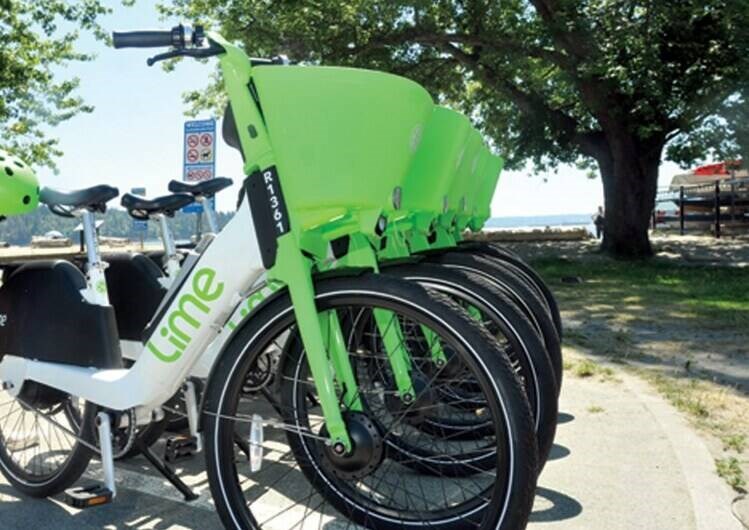For Sḵwx̱wú7mesh Úxwumixw (Squamish Nation) drivers who live on reserve land, there will soon be a cheaper, healthier and more environmentally friendly way to scoot around the city.
Tech giant Lime has announced a partnership with the Nation, with plans to bring a fleet of its electric vehicles to the community and surrounding streets. The introduction comes two years after the bikes rolled into West Vancouver, and three years since they hit the streets in North Vancouver.
The venture marks the first collaboration between a First Nation and a shared micromobility service in Canada.
Squamish Nation elected council member Sxwíxwtn (Wilson Williams) said the introduction of the e-bikes will help solve traffic and transportation problems that have long plagued reserve lands.
“Improving transportation options for both our citizens and community has long been a priority for Sḵwx̱wú7mesh Úxwumixw,” he said.
“And like other communities, the Nation is eager to support sustainable methods of transportation that will benefit current and future generations.”
Williams said the Nation is looking forward to embarking on a “long and positive” partnership with Lime.
According to Lime, the collaboration will address the unique mobility challenges faced by First Nation communities, will help improve the safety of its members and will aid in fostering community spirit.
The e-bike sharing company said it aims to encourage a community-wide commitment to creating a safer and inclusive environment. New bikes will be adorned with stickers reminding riders to consider certain aspects of road safety, like sidewalk accessibility and the impact of blocked pathways on those with disabilities.
Lime will also reach out to riders to offer further education opportunities and encourage responsible riding behaviour.
“Lime is committed to working hand-in-hand with Squamish Nation to address transportation challenges and create positive impact,” said Sonia Kandola, Director of Government Relations at Lime.
“We are honoured to partner with Squamish Nation on this historic agreement, which represents a significant step forward in advancing mobility solutions for Indigenous communities in Canada.”
The details around the specific locations and number of fleets to be deployed are still to be released, but with two reserve lands on the North Shore - the Marine Drive area of Xwmélch’sten Capilano I.R. No. 5 near Capilano Road and the Ch’ich’élx̱wí7 ḵw Seymour Indian Reserve No. 2 near Ironworkers Memorial Second Narrows Crossing - the space for bikes and parking locations is plentiful.
The safety on roads in and around reserve land is an established concern for the Squamish Nation, with a number of tragic accidents having taken place within the community in recent years. In March this year, a 21-year-old Squamish Nation man was killed after colliding with a taxi at the intersection of West First Street and Forbes Avenue, directly outside the Eslhá7an (Mission 1 Reserve) in North Vancouver.
Speaking to the North Shore News at the time, Williams said the streets surrounding the reserve, including Forbes Ave, Esplanade and First Street, are the most worrisome regarding the potential for traffic accidents.
“We’ve lost several members there over the past 100 years,” he said.
Mina Kerr-Lazenby is the North Shore News’ Indigenous and civic affairs reporter. This reporting beat is made possible by the Local Journalism Initiative.



